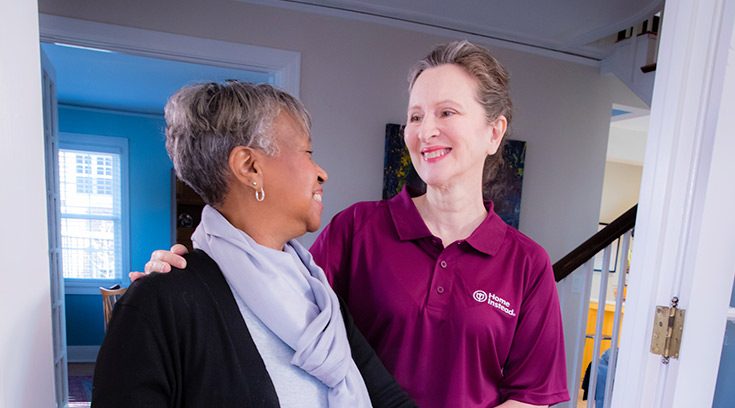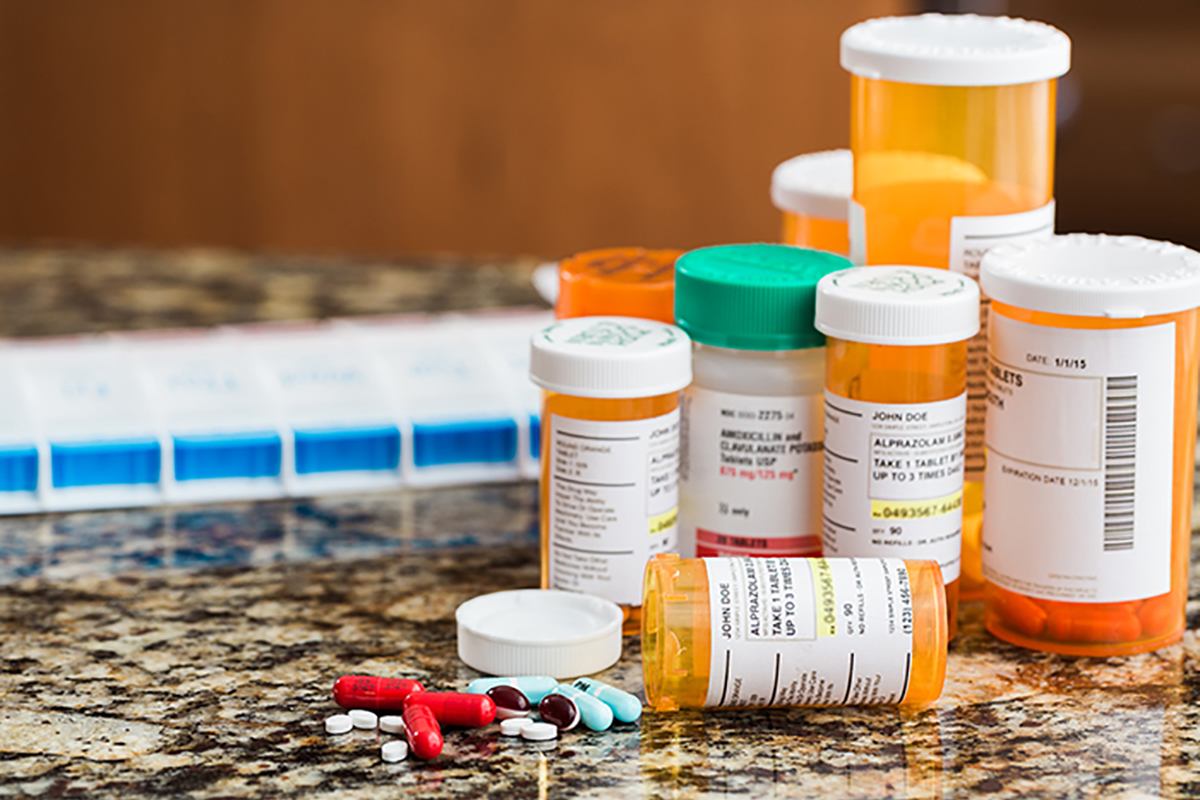Have you looked in your aging loved one’s medicine cabinet lately? Maybe your own is starting to fill up. The number of medications in the household often goes up with age. In fact, people age 65 and older make up 12 percent of all people in the U.S., but get 34 percent of all prescriptions and use 30 percent of all over-the-counter medication, according to the American Public Health Association.
The more medications that someone takes the more likely more likely they are to have a medical issue or emergency due to incorrect dosage or because the medications cause side effects when they are taken together. This is much less likely if one pharmacy knows all of your prescription and over-the-counter medications. Pharmacists are trained to look at all the medications together and contact doctors when there is a problem.
Older adults (65 years or older) are three times as likely as younger patients to come to emergency departments for adverse drug events (more than 177,000 emergency visits each year), according to the Centers for Disease Control and Prevention.
Following, from Home Instead and Dr. Jane Potter, clinical director for the Home Instead Center for Successful Aging at the University of Nebraska Medical Center, are suggested ways to help minimize the risk of medication mistakes.
8 Tips to Help Avoid Medication Mistakes
1. Get a pill organization system or service
A pill organizer can help keep individuals on track with their medications. Check out the variety of pill organizers on the market to find the right one for you or an aging loved one.
2. Make one doctor the gatekeeper to manage medications
It’s typical for an older adult to have multiple doctors, which is potentially dangerous. Dr. Potter suggests designating a primary doctor as the gatekeeper. Most people assume that doctors talk to one another, but you can’t assume that’s the case. They may not be aware of everyone involved in someone’s care. It’s best to keep a list of all providers and who is managing what and update the list every time a change in medications is made.
“Bring into doctor appointments the actual medication bottles along with bottles of over-the- counter drugs someone is taking so the doctor can cross check those each time,” Dr. Potter recommends.
3. Know why you or your loved one is taking the medication
What health problem(s) or symptom(s) was the medication prescribed to help? Make sure you and a senior loved one can read and understand the medication’s instructions. And check with the pharmacist that the medication being given is what the doctor prescribed. Double check with the pharmacist to make sure all medications work well together. Make sure you know all possible side effects that you need to watch for.
4. Keep regularly scheduled appointments and an open dialogue with a health care provider
Regular doctor visits are important for everyone. Encourage the older adults in your life to keep their appointments and know to talk with the doctor if they might be having a problem with their medications. Try writing down questions before appointments so that you and your loved one remember everything you need to discuss during the visit.
5. Talk with the doctor if paying for medications is challenging
People do not take medications that they cannot afford. If you or an older loved one has trouble paying for a medication, discuss this with the doctor and pharmacist. Often there are medications that are just as good but less expensive and your pharmacist will know how to help get discounts.
6. Discuss any problems taking a medication, such as the inability to swallow or difficulty opening a pill bottle.
Many times problems taking medication are easy to fix. For instance, a liquid can be prescribed rather than pills for some medicines. What’s more, pharmacists must give you easy-open bottles that can help individuals with arthritis. Discuss these options with a pharmacist.
7. Tell a health care provider if you suspect a loved one is forgetting to take a medication
It’s easy to become confused about the medications that have been prescribed, when they should be taken and how often. Ask your senior’s health care provider how much help your loved one is likely to need with medications so that you can work with the doctor and pharmacists to be sure that medications are safe and helpful.
Depression might make sticking to a medication plan harder. And some medications can cause people to feel down or depressed. Be sure to let your doctor know if you feel depressed or your senior loved one seems depressed.
8. Consider hiring a caregiver
If you’re feeling overwhelmed and unable to manage medications—or you’re a family caregiver worried about an older adult’s ability to manage medications—consider hiring an in-home caregiver. Contact your local Home Instead office to learn more.
In-Home Care for Chronic Conditions
Living with a chronic health condition can feel overwhelming. Home Instead skilled Care Professionals relieve the burden with person-centered care tailored to individual needs.





